Let me put it out there, I am no rose expert. However, I have been successfully growing roses organically for many years now. Growing roses in the south is not for the faint-of-heart. The high humidity causes blackspot and our active pests (i.e. Japanese beetles) can drive you to throw in the rose growing bucket, or throw the bucket at the roses (serenity now!) Roses require a lot of pruning, deadheading and fertilizer to produce their amazing bounty. I grow without pesticides or fungicides and I have never lost a rose bush to either. It can be done!
I have removed the varieties that did not flourish via my organic methods, but there are many that have grown well in my garden. I give new roses I plant several years to adapt to not being treated with fungicides before I “shovel prune” (i.e. remove them completely) them from my garden.
LemonTree favorites:
- David Austin – Lady of Shallot, Alnwick, Poet’s Wife, Boscobel and Roald Dahl
- Kordes – Bliss, Lions’ Fairy Tale, Pink Enchantment, Summer Romance, Savannah Sunbelt and Plum Perfect
- Meilland – Francis Meilland, Princess Charlene of de Monaco and Dee-Lish
- Weeks – Arctic Blue, Celestial Nights, Distant Drums, All Dressed-Up and Life of the Party
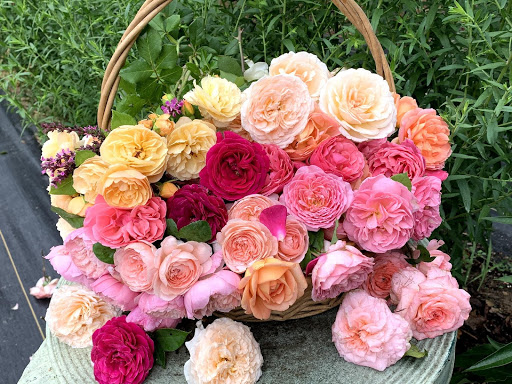
My soup-to-nuts rose maintenance program:
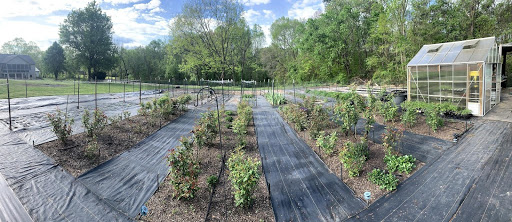
- Mid to late March – heavy pruning, planting new varieties and transplanting. Roses need lots of air circulation, especially in the heat of a Southern summer. I plant 3’ apart with 4’ walkways between rows. I also have drip irrigation with 1 gallon per hour emitters.
- April – weed, clean up dead leaves and debris, add new mulch, fertilize with Alfalfa/Seaweed Tea. Rabbit manure is great if you can find it. Unfortunately, I’m unaware of anyone who sells it commercially. I just happen to have friends that raise show rabbits.
- May – enjoy the spring flush with beauty and share with friends and family
- June – Japanese beetles are emerging. I pick off as many as possible every morning and evening.
- Mid-June – I prune and deadhead remaining blooms and remove any leaves with blackspot. Be sure to water, especially new and transplanted roses.
- July – apply Alfalfa/Seaweed Tea, continue watering and removing leaves with blackspot
- August – keep watering, prune any diseased leaves and canes, deadhead.
- late August – apply the final dose of Alfalfa/Seaweed Tea
- September – enjoy the fall blooms!
- October – stop all cutting, deadheading, pruning and fertilizers. Enjoy the last blooms and let the roses go into winter dormancy.
- November – place orders for new roses that will arrive in March. I like DavidAustin.com, HighCountryRoses.com and WitherspoonRose.com. I’ve been to Witherspoon’s physical location in Durham, NC several times. In fact, if you are local, Witherspoon offers a service to tend and maintain roses on your property, but they are not organic.
- December thru February – settle down for a long winter nap, work on my paintings if I can find the motivation
Dealing with pests
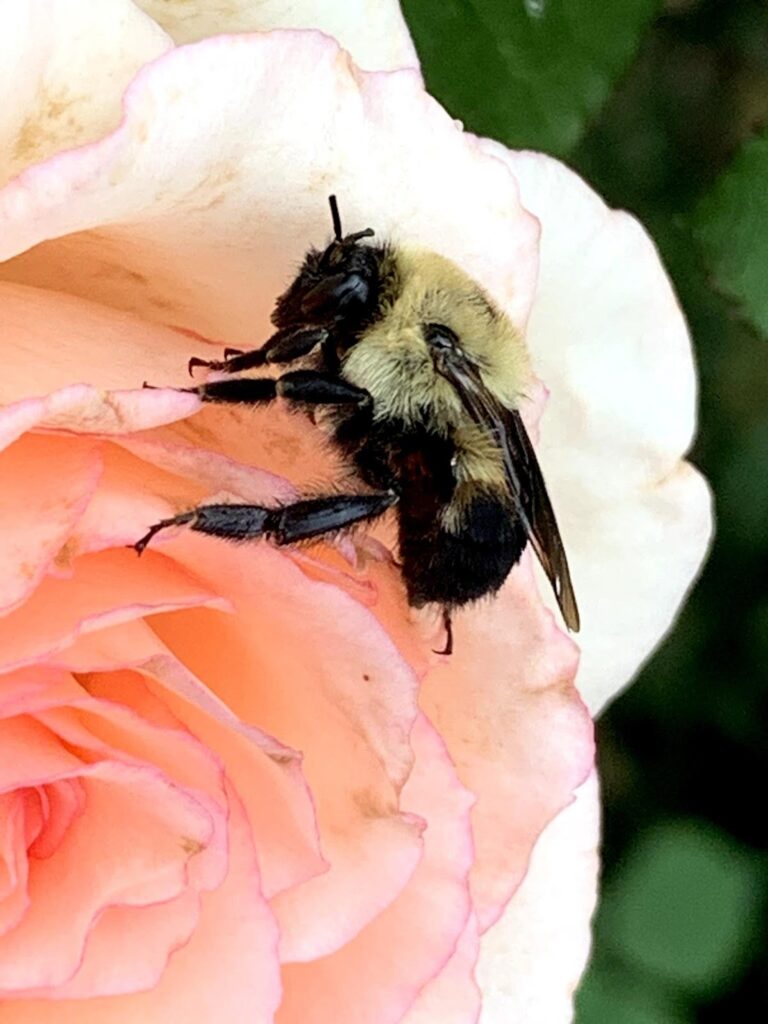
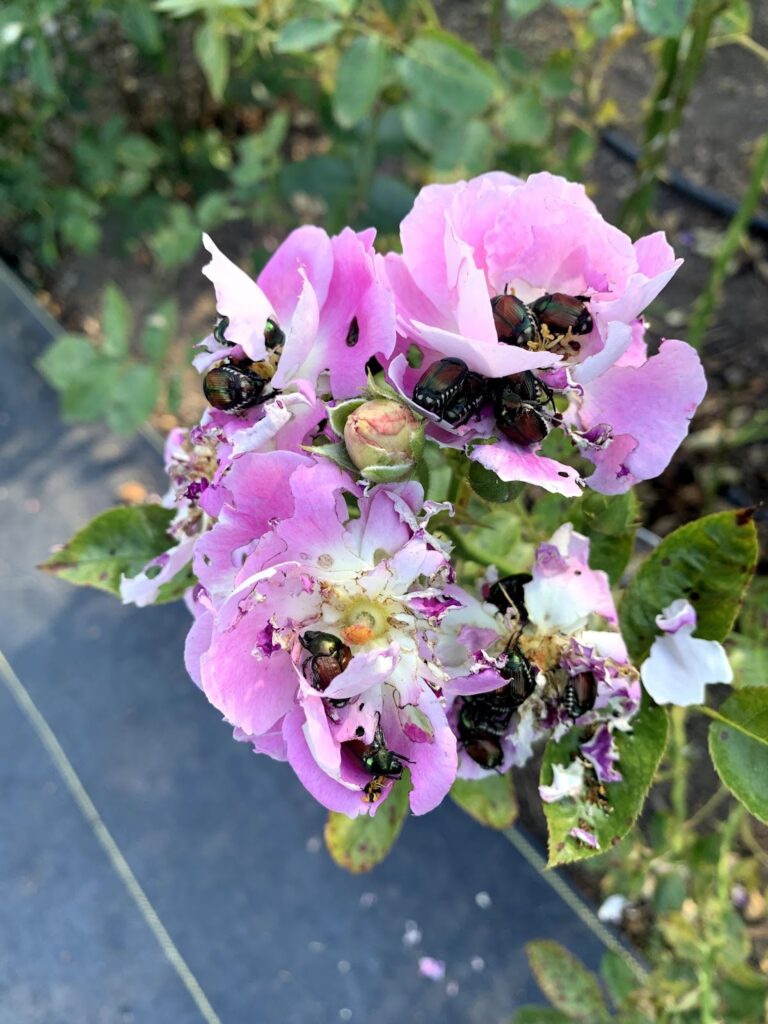
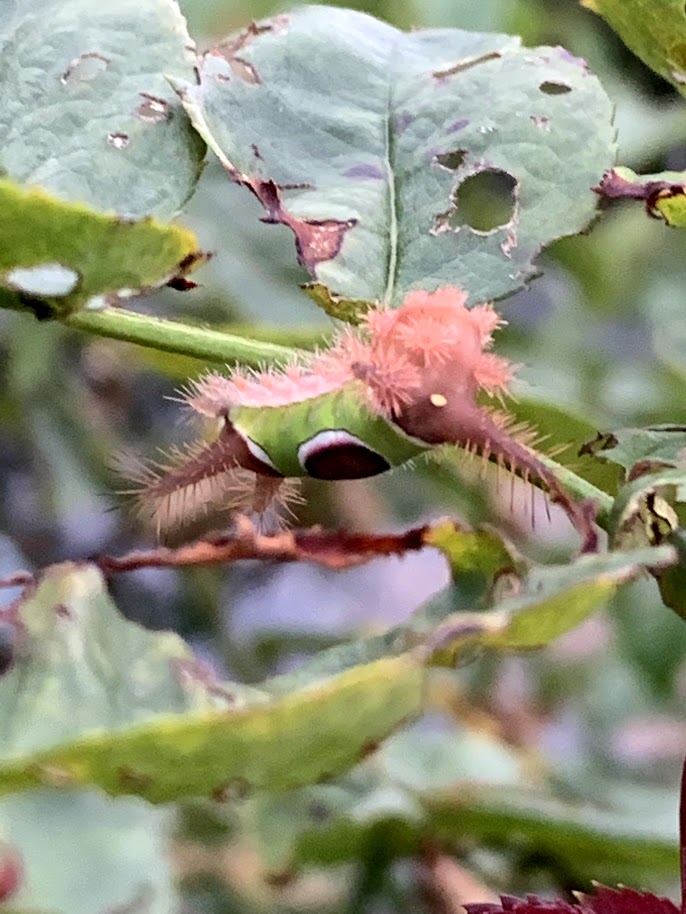
When it comes to bugs, it’s easy to get overwhelmed and feel as though you are fighting a losing battle. Don’t sweat it! You can afford to lose a few leaves to hungry insects. I will never use pesticides in my garden. In my opinion, it isn’t worth the damage to your health or the environment. Remember, pesticides kill beneficial creatures too! Pollinators (bees and hummingbirds), toads and birds can all be collateral damage that results from the use of pesticides. I recently ordered a book, Mason Bee Revolution, that discusses the importance of caring for our pollinators. Did you know that Mason Bees can pollinate as many as 2,000 flowers in a single day? Crazy, right? As the song says, “I don’t care about spots on my apples [or roses], leave me the birds and bees.” If you have the luxury of a large yard, place live beetle traps as far away from your garden as possible. Otherwise, take the time to go through and hand pick bad bugs from your plants. Be careful though, bees and stinging caterpillars like to hide under the leaves. It’s certainly labor intensive process, but lazy people do not take up gardening!
I look forward to hearing your successes.

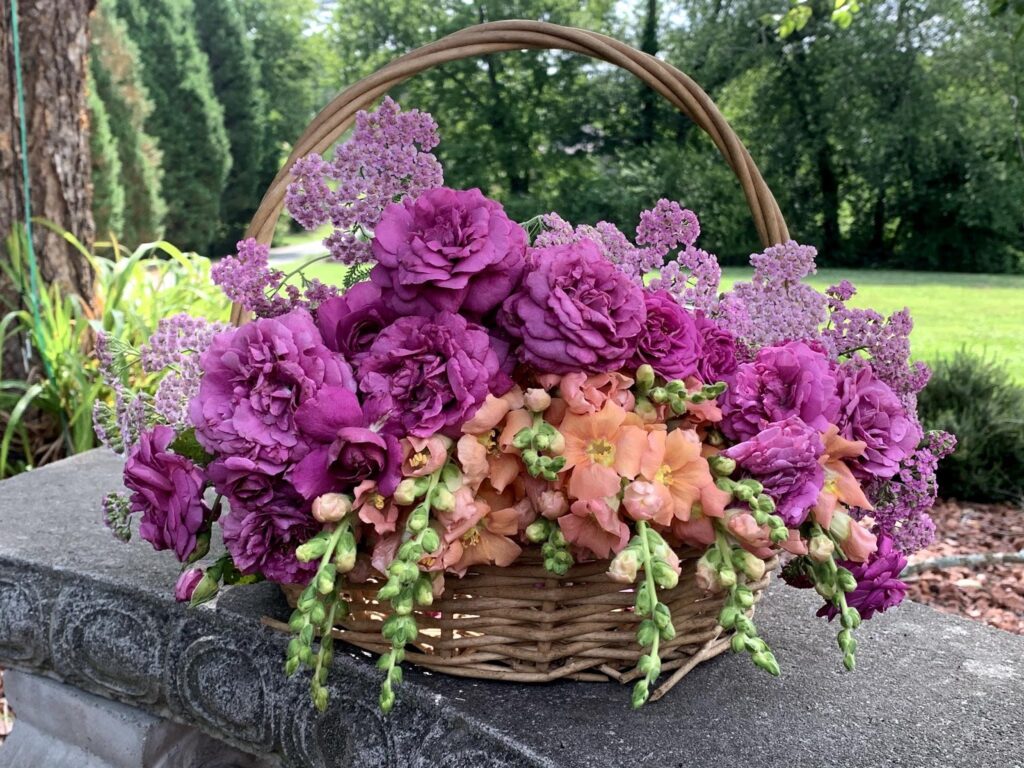
Loved your articles on roses and dahlias. Makes me want to get outside and go to work on another flower bed. Best I wait until the snows are gone.
I have been using chemicals in my rose gardens but want to enjoy a more organic garden.
Keep up the good work.